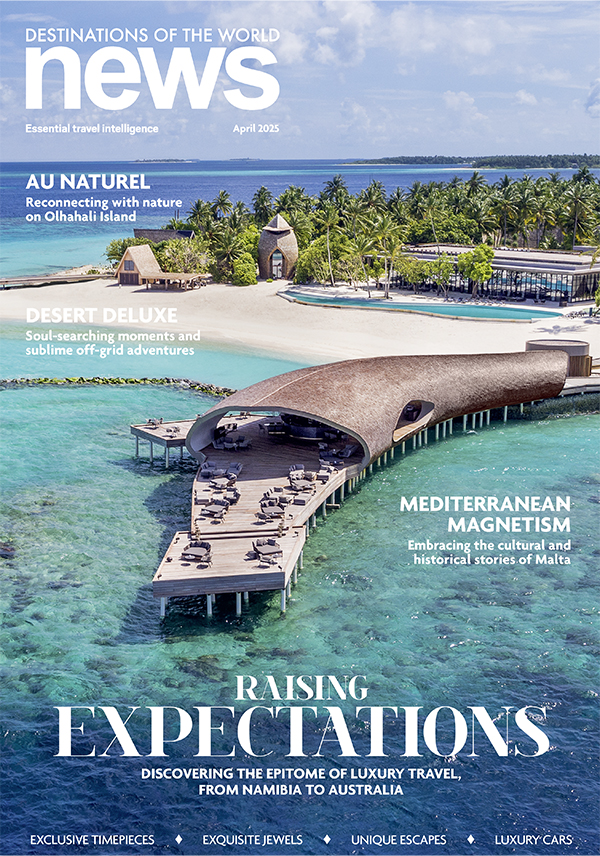He arrived in Dubai two years ago with the launch of the critically acclaimed Clé in the Dubai International Financial District (DIFC), but now Australian-born Lebanese chef Greg Malouf is setting off on new adventures all his own – one of which will be taking place in Oman’s dramatic Musandam Peninsula.
The chef has just announced a limited stint in the kitchen at Six Senses Zighy Bay’s Sense on the Edge restaurant from April 5-9, where he’ll cook up modern Middle Eastern cuisine inspired by his travels through the Levant.

Sense on the Edge is perched high above the Six Senses resort with views over the Gulf of Oman
You are moving on from your two-year deal with Clé Dubai – can you share why you chose not to renew your contract?
Toward the end of my contract it became clear that the owners of Clé wanted to develop the entertainment aspects of the space; to make it more of a multi-faceted venue than a straightforward restaurant. While I respect these ambitions, for me, it’s always all about the food. I wanted to explore other options that have emerged recently in Singapore, London and even Beirut; but that’s not to say I’ve finished with Dubai.
You’re now starting work on your eighth book – what will you be researching?
At the moment I’m exploring a number of different ideas for my next cookbook, but it’s true to say that I’m increasingly drawn to Lebanon, my family’s homeland, for source material. I’ve been lucky to spend a lot of time there over the last two years and hope to continue this – hopefully with Lucy, my writing partner, in the next 12 months or so.
Will the new book have a contemporary angle?
It’s still a bit soon to drill down to detail, but I will say that all my books have a contemporary edge. I’ve spent 25 years – both in restaurants and books – trying to introduce people to imaginative ways of exploring and interpreting traditional Middle Eastern dishes and techniques. The next book will embrace the same philosophy.
Are you finding diners have an appetite for innovative Middle Eastern cuisine or is the traditional tried-and-true favoured?
What seems clear to me is that there is a hunger for the “new” and “different” anywhere there is a sophisticated restaurant culture. I’m all for pushing boundaries (that’s how cuisines and cultures evolve, after all) but I’ve found that there’s a tendency for chefs to focus on being “experimental” just for the sake of it, and this leads to fashions and fads that inevitably fade away over time. On the other hand, traditional, tried-and-true recipes are a wonderful introduction to any cuisine, but often a certain laziness creeps in, both in technique and, especially, in quality of produce. For instance, I dearly love traditional Lebanese food but when eating out, I’m often very disappointed by even the humblest dip or simplest salad – and it’s largely because the quality of the raw ingredients falls short. For me, it’s always been about balance. I’ve always believed that there are new, exciting and imaginative ways of exploring and interpreting the traditional dishes and techniques of my childhood – but, critically, without compromising the integrity of the cuisine. And I do think it’s important never to forget that integrity includes quality.
Other than your new book, do you have any other plans in the pipeline – there was a rumour circulating that you may be looking to launch a jazz club in Beirut?
I’m currently exploring projects in several different locations, but I’ve not heard any rumours about a jazz club! And to be honest, I’m not much of a jazz fan. I fall in love with Lebanon anew each time I visit, but there are logistical issues with starting a business there. What I will say is: If I were going to start something in Beirut it would most likely be a restaurant with a bar and bakery.










